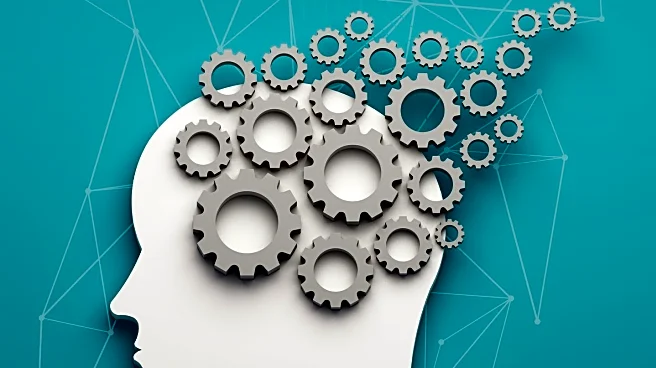What's Happening?
Psychologists are emphasizing the benefits of cognitive reappraisal, a strategy for emotional regulation that involves reframing negative experiences. This approach is highlighted as a means to build resilience
and improve mental health. According to Iris Mauss, a psychology professor at the University of California, Berkeley, cognitive reappraisal allows individuals to alter their emotional experiences by changing their interpretation of events. This method is a key component in therapies like cognitive behavioral therapy. Research indicates that cognitive reappraisal can reduce negative emotions and enhance positive ones, contributing to long-term psychological well-being.
Why It's Important?
The significance of cognitive reappraisal lies in its potential to improve mental health outcomes by fostering resilience and emotional well-being. By enabling individuals to reinterpret negative experiences, this strategy can lead to greater life satisfaction and reduced symptoms of depression and anxiety. The approach is particularly relevant in therapeutic settings, where it can help patients develop healthier emotional responses. As mental health issues continue to be a major concern in the U.S., strategies like cognitive reappraisal offer valuable tools for individuals and mental health professionals to manage stress and emotional challenges effectively.
What's Next?
The continued integration of cognitive reappraisal into therapeutic practices is expected to enhance mental health treatment outcomes. As more research supports its efficacy, mental health professionals may increasingly adopt this strategy in various therapeutic contexts. Additionally, public awareness campaigns could promote cognitive reappraisal as a self-help tool, encouraging individuals to apply it in their daily lives to manage stress and improve emotional resilience.
Beyond the Headlines
Cognitive reappraisal not only impacts individual mental health but also has broader societal implications. By promoting emotional resilience, it can contribute to a more emotionally stable and productive workforce. Furthermore, as mental health becomes a more prominent public health issue, strategies like cognitive reappraisal could play a role in reducing healthcare costs associated with mental health treatment.










